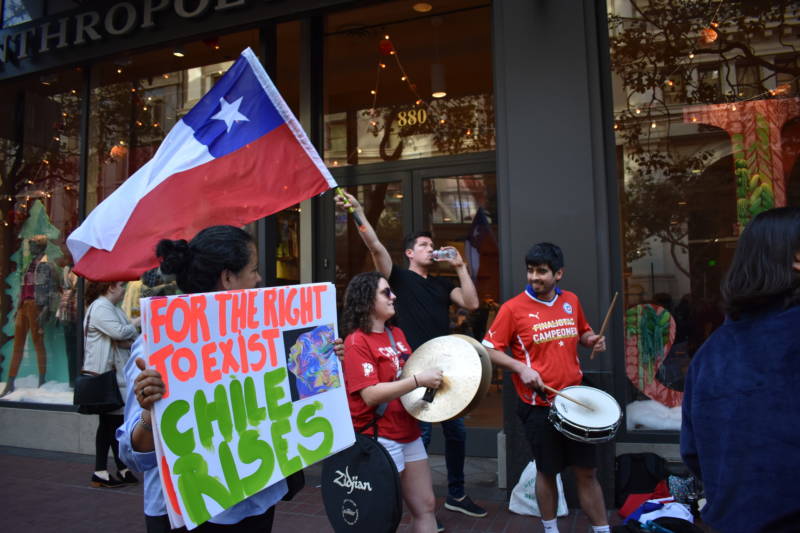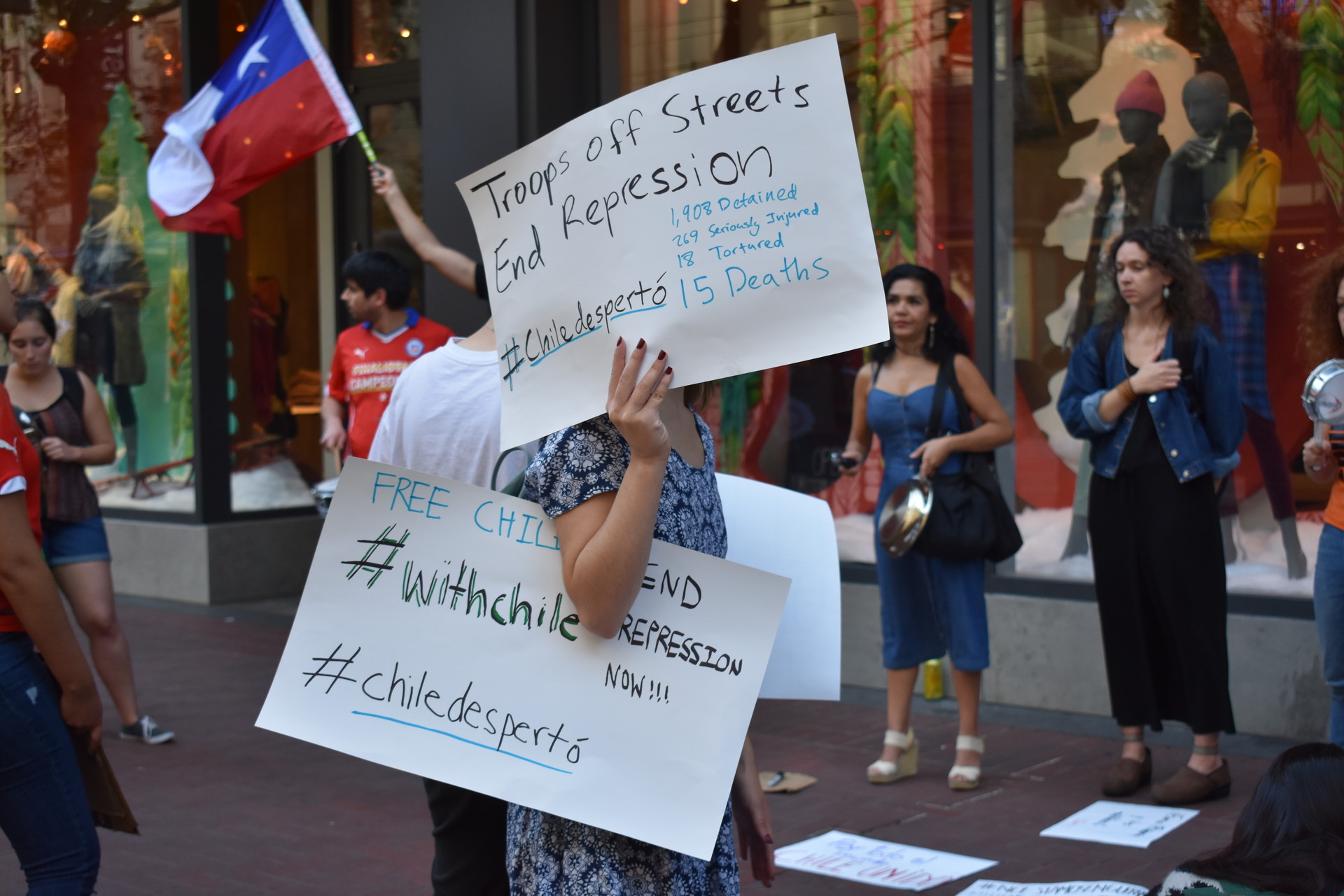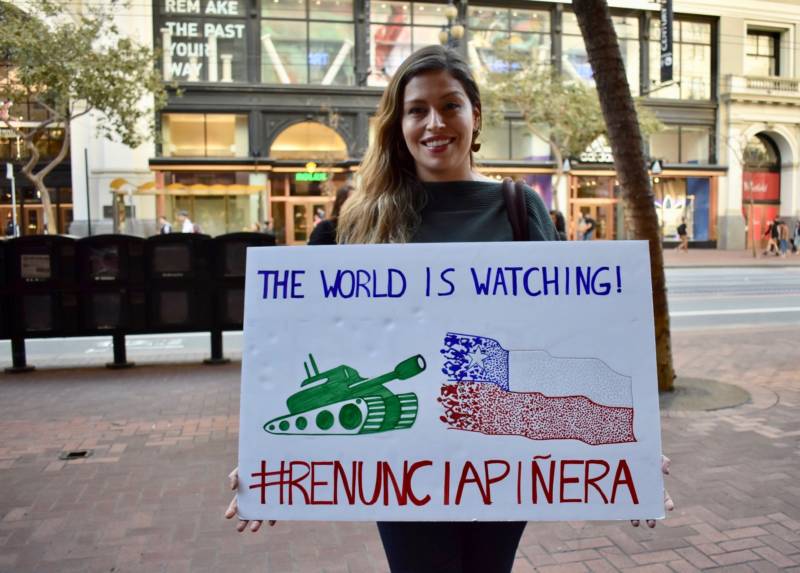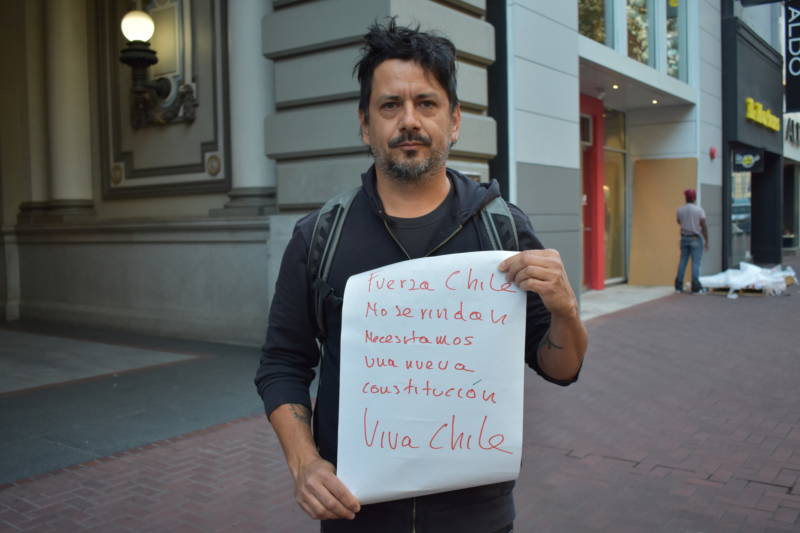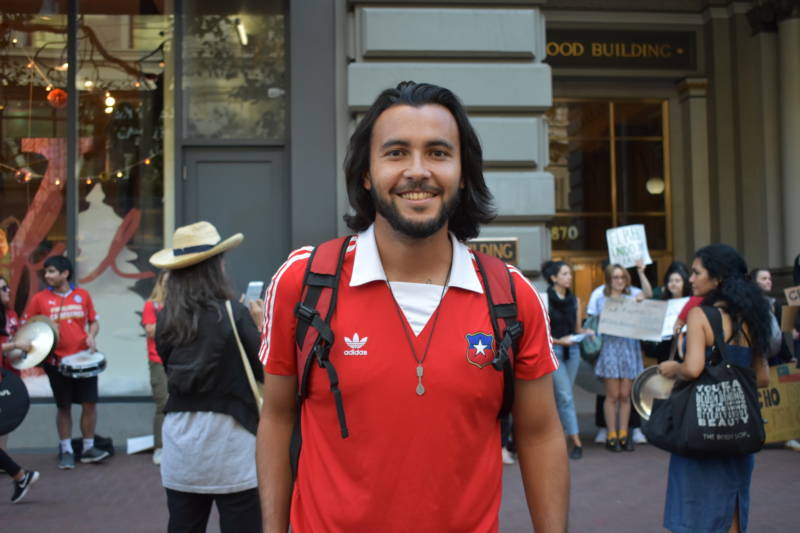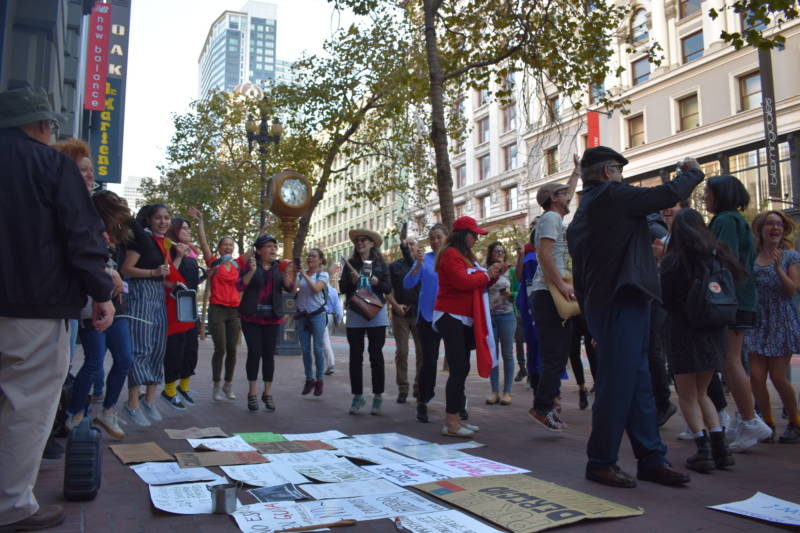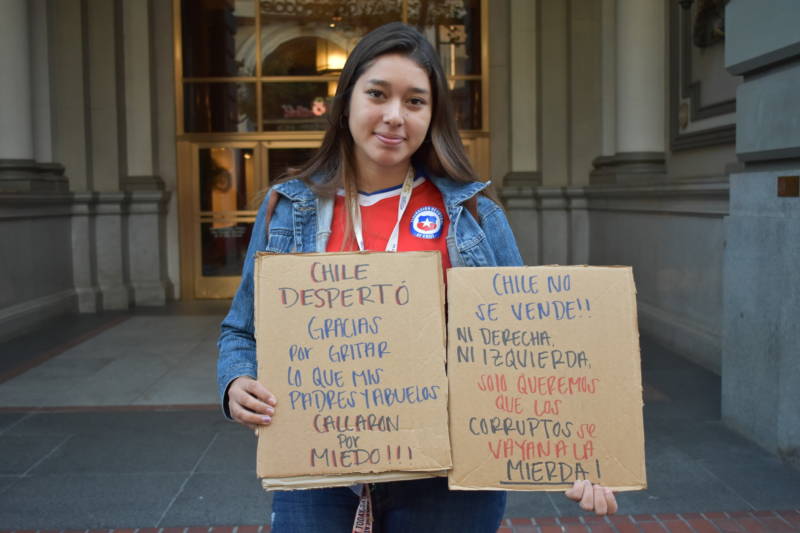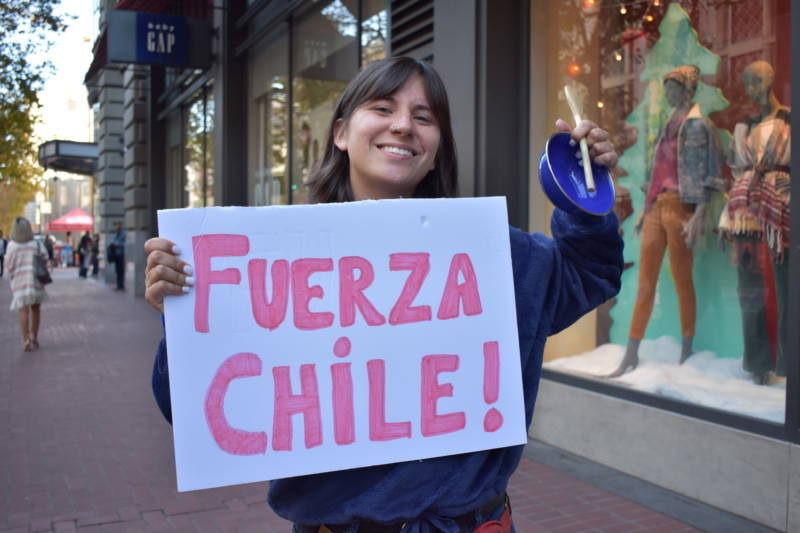On Saturday, Chilean President Sebastián Piñera called for his cabinet to step down, after more than one million people protested in the country's capital to call attention to the wealth inequality and rising number of people in debt in the country.
Waving signs, banging on pots and pans and chanting calls for the resignation of Chile's president, a group of about 40 people rallied earlier this week outside the Chilean embassy in San Francisco to show support for protesters in Chile.
Since protests began two weeks ago in Chile, 18 people have been reported dead after demonstrations turned violent on Oct. 18. Piñera has announced a state of emergency, allowing authorities to block public demonstrations.
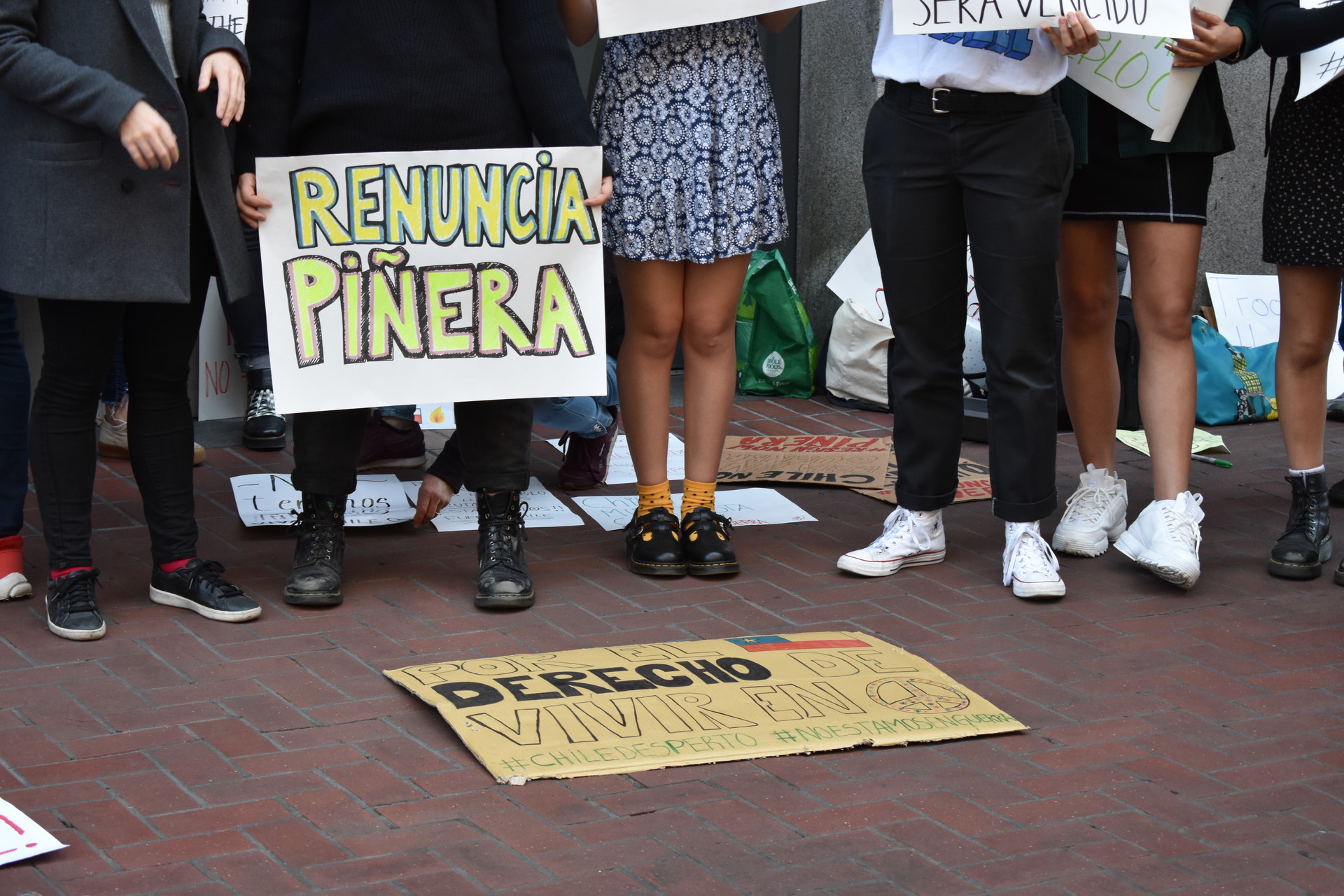
Many of those that gathered on Thursday for the solidarity protest in San Francisco were born and raised in Chile, like Vanesa Acevedo, who moved to the United States temporarily while finishing school.
Acevedo had plans to go back to Chile at the end of the year to reunite with her family. But now, she is afraid of what might happen if she returns.
La comunidad Chilena manifestándose afuera de la embajada de Chile en San Francisco 🇨🇱 @KQEDnews pic.twitter.com/uhsaKbFMec
— adrianamorga (@adrianamorgao) October 24, 2019
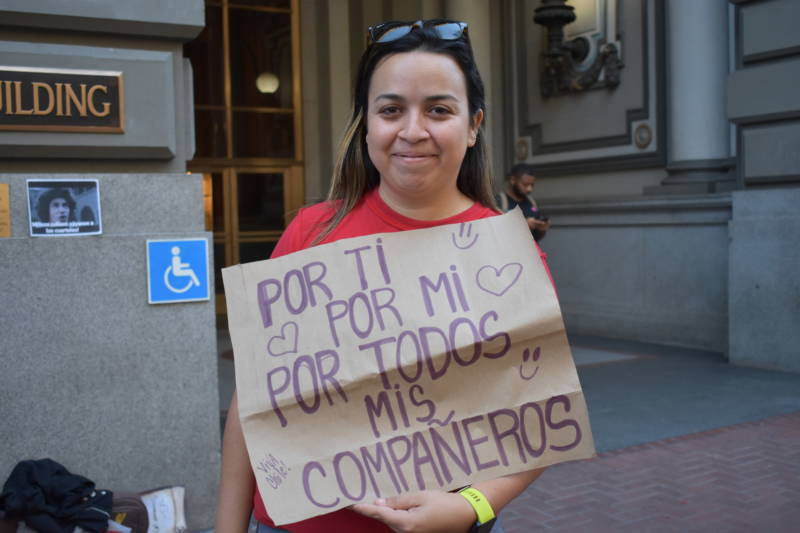
"My dad fought the dictatorship. When I was younger I went out to the streets to protest for a free education," said Acevedo, who spoke in Spanish. She said she was tired of watching the few get rich in her native Chile. "Now I am extremely happy that they are going out in the street, that they are tired because we have anger. It is an injustice that people are dying, that people are disappearing, that people are being tortured.”
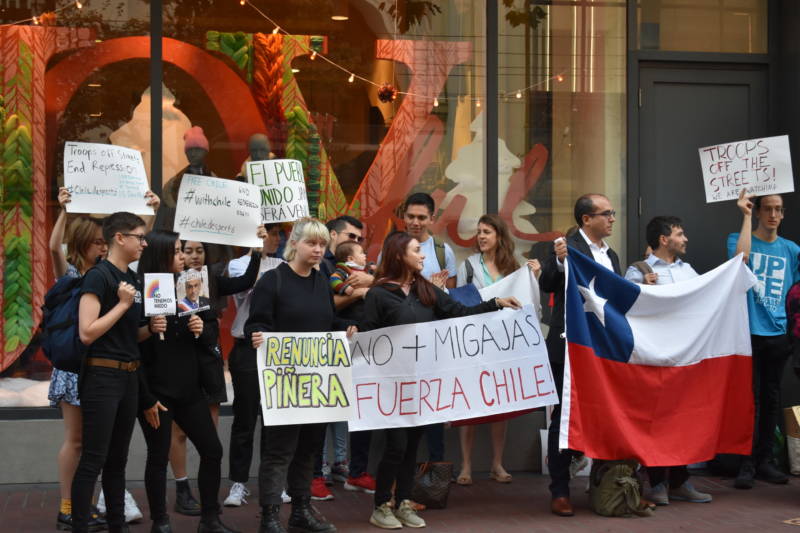
Since last Friday, Oct. 18, police officers and the military have been occupying the streets of Santiago, the metro has shutdown, the government imposed a nighttime curfew and there has been cases of the military using tear gas on protesters.
